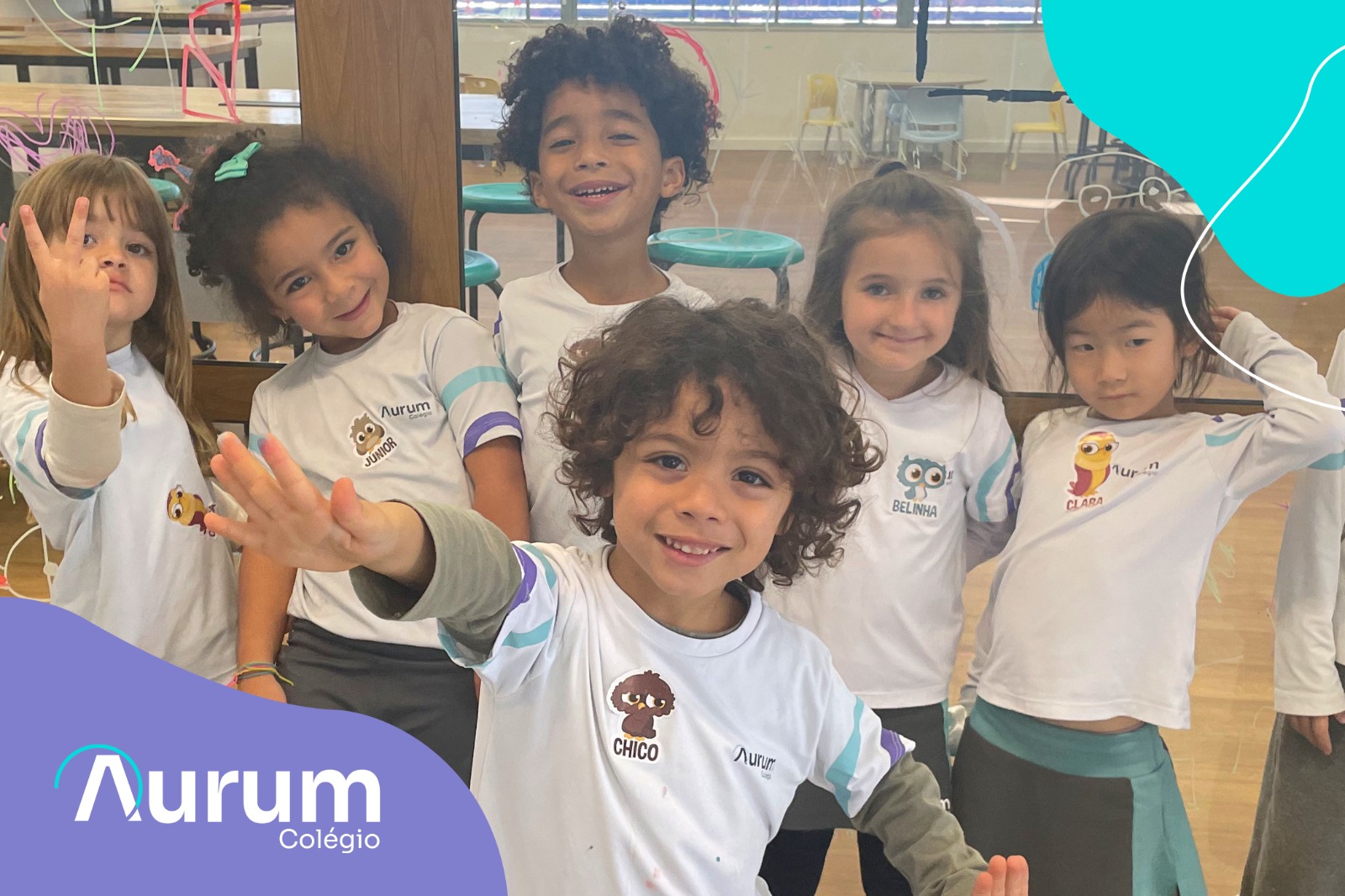
Diversity is one of the fundamental values of Colégio Aurum and it is aligned with the institution pillars: connectivity, sustainability, entrepreneurship and glocalization (global + local).
By valuing plurality, questioning paradigms and encouraging self-knowledge, our school prepares its students to have the freedom to become their best selves and to get wherever they want to be.
Find out how Aurum qualifies students to be a fundamental part of building a fairer and more diverse society.
What you will see:
Keep reading!
What is diversity?
Diversity is at the center of human relations. And a world in constant transformation requires a broad understanding of this truth.
The term diversity refers to the variety of characteristics of people, their differences and singularities. These characteristics can be ethnic, cultural, religious, linguistic, socioeconomic, gender, sexual orientation, physical or mental abilities, among others, and they can be similar or different between two or more people.
Respecting differences is essential to live in harmony and learn from people who have different experiences and realities. That is why tolerance, solidarity, integrity and collaboration are concepts that we value.
In classes, teachers encourage students to recognize the importance of differences, showing in practice how we can learn from them.
Why is it important to talk about diversity in school?
Talking about diversity in school is essential to provide tools that help in coexistence, interpersonal relationships and learning from the different forms of life and social contexts. Here are some of the benefits of talking about diversity in the school environment:
The school environment is a place of preparation for the world that will be waiting for students in the future. Today people have much more contact with different cultures, traditions and perspectives, so it is essential that they be prepared to live and coexist in a plural society. Working on the theme of diversity is an important part of the formation of the global and conscious citizen of tomorrow.
Meet 5 types of activities to promote diversity
There are many ways to approach diversity in the classroom. It is possible to develop interesting, playful projects that connect with the reality of students. Here are some examples and suggestions:
All of these initiatives can and should be developed in an interdisciplinary way, that is, involving two or more school subjects. This is a way to solidify knowledge and involve more teachers in the process, making learning more meaningful. These activities can be a great way to help students grow and develop in important and positive ways.
Aurum initiatives to value diversity
At Aurum, we promote various activities and projects that have the general or specific objective of addressing the theme of diversity in a close way to students, always aligned with current issues and approaches.
Bringing the theme into the daily lives of children and adolescents allows them to experience diversity in practice and in a concrete way, which broadens understanding and respect for the most different traditions and cultures.
At the school, for example, we held craft workshops on Native Peoples Day to expand students' knowledge about the many indigenous peoples of Brazil and their customs. We also developed reading circles of works on the importance of fighting racial prejudice and, thus, address racism and xenophobia.
The most important thing about these initiatives is being able, through them, to build a more welcoming, transparent and open environment for dialogue, valuing diversity in all its forms and promoting continuous learning.
Come visit Aurum and learn more about its differentials and innovative pedagogical proposal
Meet and fall in love with our space and our teaching!
SCHEDULE YOUR VISIT

(11) 4863-1500
Av. Doutor Adoniro Ladeira, 94 - Vila Nova Jundiainopólis
CEP: 13.210-800 - Jundiaí/SP - Brasil
© Colégio Aurum. All rights reserved
Privacy Policy
No comments yet.
Let us know what you think.